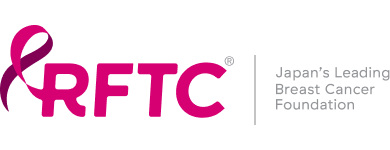
16 May PiNK: Your Questions Answered

Breast Cancer Care’s experts answer your questions about breast cancer and its treatment
PiNK 2018 SPRING p.6-p.7
Q. I’ve been reading about specific diets – particularly ones that avoid dairy foods – for people who’ve been diagnosed with breast cancer. Should I be following one?
A. It’s common and understandable to want to do as much as possible to be healthy when you’ve been diagnosed with breast cancer.
Many people find changing their lifestyle helps them regain a sense of control, whether it’s changing how physically active they are or what they eat.
A lot of information on diet and breast cancer is conflicting, and it can be confusing and frustrating to read so many different ideas about what’s best. Eating healthily can make a difference to energy levels and general wellbeing.
Some people choose to adopt particular or ‘alternative’ diets to try to reduce the risk of cancer coming back (recurrence). While there’s no conclusive evidence that any specific diet can reduce the risk of recurrence, evidence shows that being a healthy weight (neither overweight nor underweight), doing some physical activity and eating a healthy balanced diet may help reduce the risk of cancer coming back.
Alternative diets often promote eating more of or avoiding certain foods. Because of this, they can sometimes lead to you lacking nutrients you need.
Some people adopt a dairy-free diet after a diagnosis of breast cancer, but there’s no evidence that this reduces the risk of recurrence. Following a dairy-free diet is a personal choice, but it can lead to a drop in the levels of calcium in the body.
Calcium is important for bone health. Bone strength naturally decreases as we get older and some hormone therapies used to treat breast cancer can also reduce bone strength. Therefore, it’s important to include calcium in your diet to reduce the risk of osteoporosis and possible fractures.
If you’re thinking about changing your diet or want more information, you may find it helpful to talk to your specialist team or a dietitian.
Q. I’ve been diagnosed with secondary breast cancer in my bones and have been told that, although it can be treated, it can’t be cured. I’m finding it difficult to tell my family and friends. Do you have any suggestions?
A. Being diagnosed with secondary breast cancer (when cancer has spread from the breast
to another part of the body) can be overwhelming for both you and those around you.
Telling anyone about your diagnosis is never easy, but can be more difficult when you need to tell people closest to you. The fact that your cancer can be treated but not cured is always di cult to explain to others.
There’s no best way to start a conversation. People often arrange to speak with family or friends face to face, but this may not always be possible. Many people find it easier to start at the beginning: when they found a symptom or had a scan, how they were diagnosed and, importantly, that there’s a plan for treatment.
Some people choose to tell a small number of people closest to them and ask for their help to tell others. This can avoid having to repeat the same information many times.
Talking openly and honestly can be very difficult at first but often gets easier as the shock begins to subside. You and the people closest to you might find it helpful to know how breast cancer in the bone is affecting you so they can know what support to offer.
We often instinctively want to protect people closest to us. However, whoever you choose to tell, people will bene t from your honesty. Knowing the facts about your circumstances, as well as how you’re feeling, can help others be honest with you and give you the support you need.
Q. My oncologist has just told me I can stop taking my hormone therapy. I’ve been waiting for this day for years and thought I would feel happy. But I feel really anxious. Is this normal?
A. It’s not uncommon for women to feel anxious and worried when they come to the end of their hormone therapy. They often describe feeling vulnerable and, like you, worry they are losing their safety net. On one level you feel you should be happy because your treatment is finishing. But on another level it can feel as if nothing is being done to reduce the risk of your cancer coming back, and the fear of recurrence can sometimes be overwhelming.
You may find it reassuring to know that research has shown women continue to benefit from hormone therapy even after stopping treatment. This is called the carryover effect.
It’s also important to remember that if you have any new symptoms or concerns, you can be referred back to the breast clinic for an assessment. You should have been told who to contact in this case, whether it’s your breast care nurse, breast clinic or GP.
With time you’re likely to begin to feel less anxious. But if these feelings continue and are interfering with your enjoyment of life, talk to your GP. They may refer you for counselling or other talking therapies to help you move forward.











